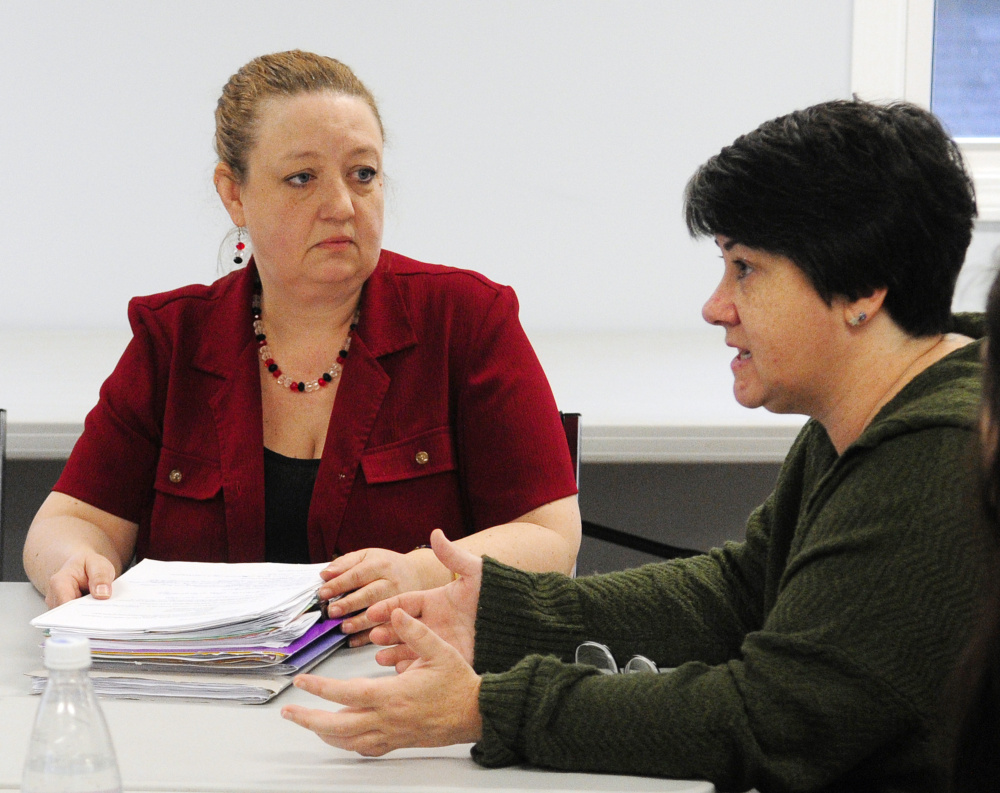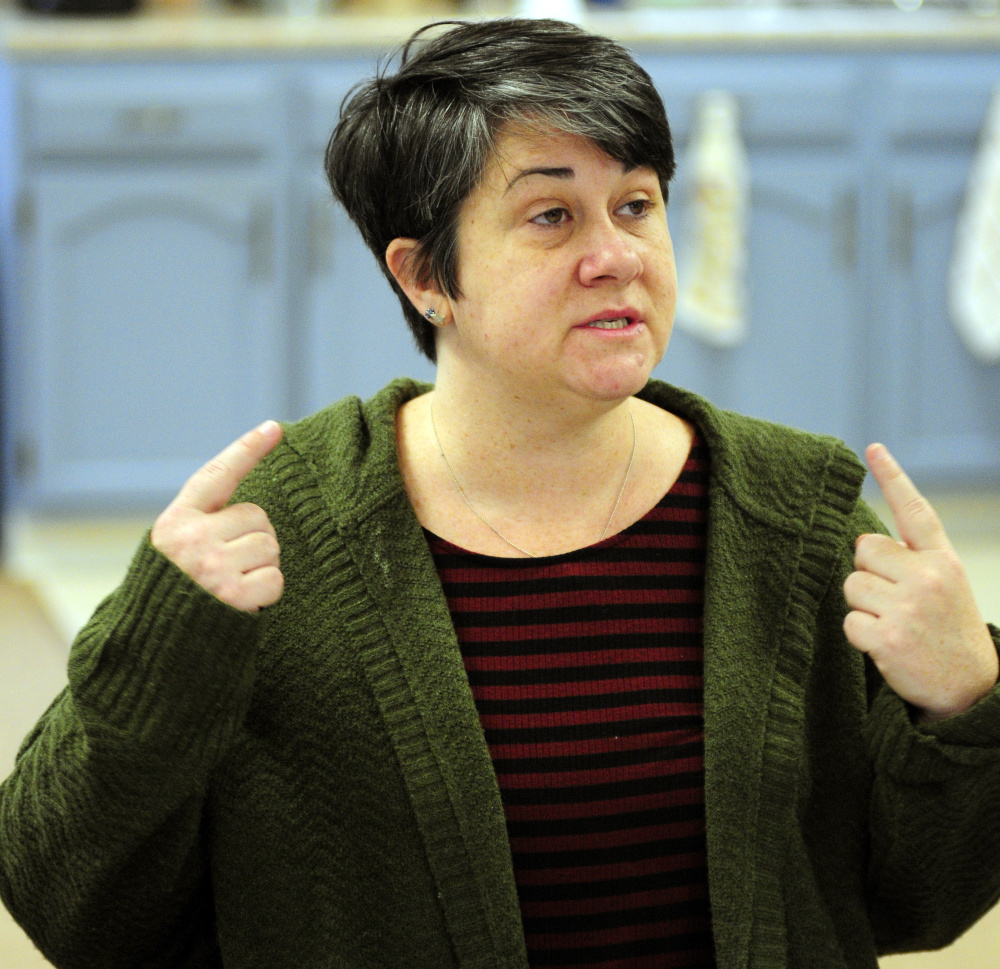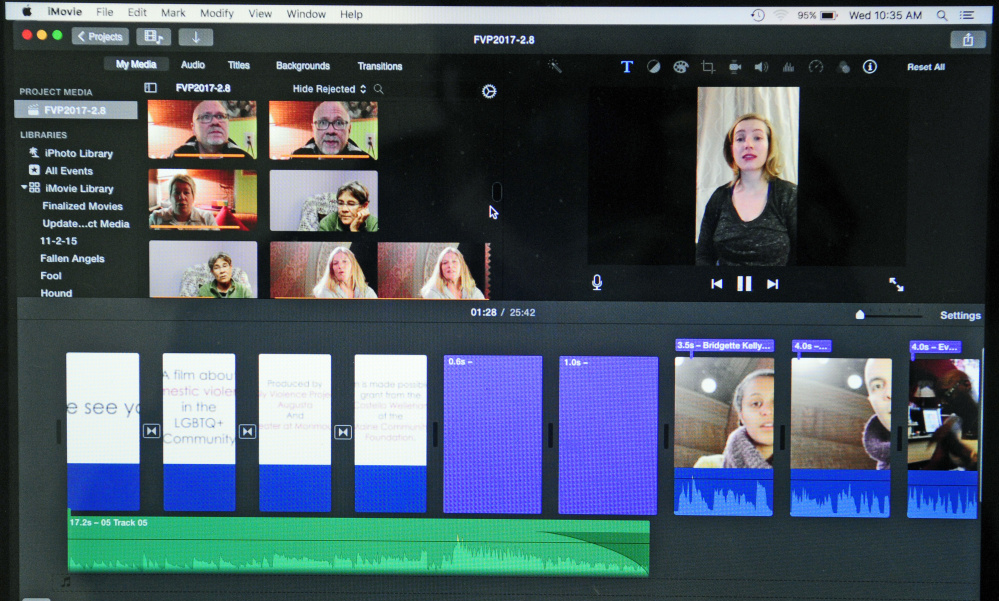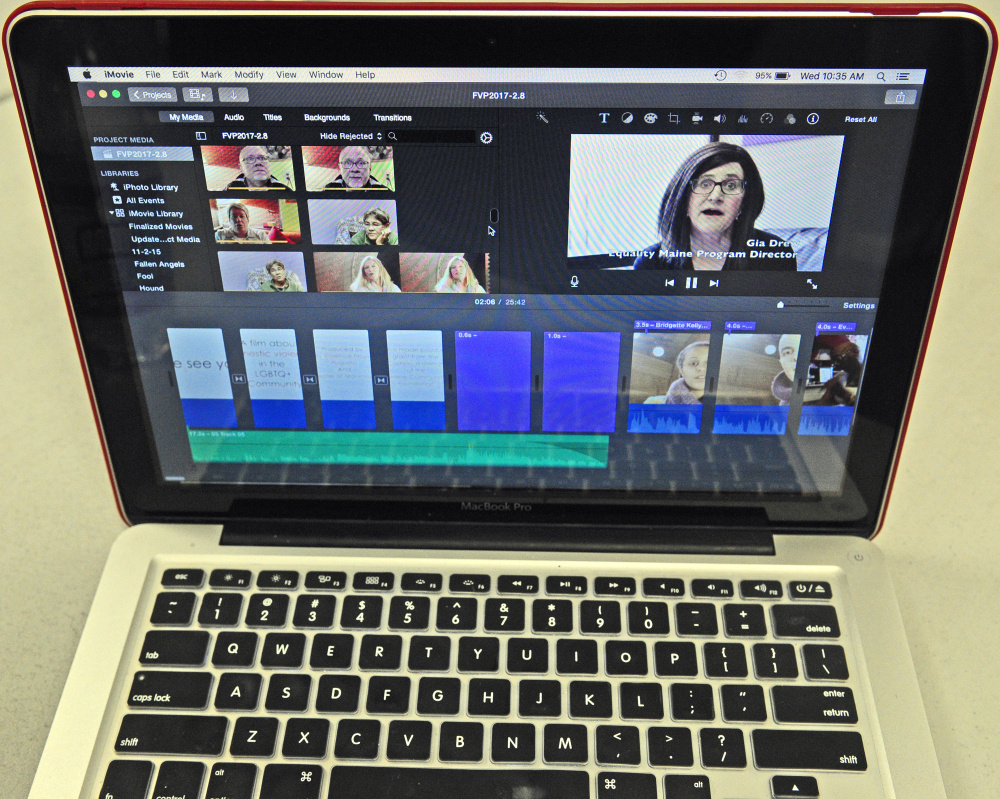AUGUSTA — “Moonlight” tells the story of a gay African-American boy growing up in inner-city Miami facing physical and emotional abuse over his sexuality and identity. The independent film became the first LGBT movie to win the best picture Academy Award last week.
While an Oscar isn’t a realistic goal, the Family Violence Project hopes its upcoming short film highlighting domestic violence in the lesbian, gay, bisexual and transgender community has a similar effect.
“We made the connection that what’s happening at home is what’s happening in schools and what’s happenings in communities,” said Nancy Provost, an abuse prevention educator for the Family Violence Project and one of the film’s directors. “It all ties together in a cycle.”
The film, called “We See You,” is a mix of scripted dialogue and actors and regular people sharing their own experiences with domestic violence. Writer and co-director Carmen-maria Mandley said the script was full of information for everyone to follow, but she also gave actors and the other people an opportunity to speak.
“What we got was illuminating and desperately vulnerable information from a lot of people who within their own families and their homes have experienced this and have never known where to go,” Mandley said. “We didn’t anticipate just how much information we were going to get.”
Mandley said she gave Christina Hallowell, the film’s editor, over 80 hours of footage that she is in the final stage of cutting up and piecing together. When the film is completed, Hallowell said, it will probably be 30 to 35 minutes long.
The Augusta-based Family Violence Project was awarded a $5,000 grant in September 2015 from the Jane Costello Wellehan Fund of the Maine Community Foundation. Kelly Smith wrote the grant application and said they asked for the money for focus groups, school presentations and community events. She said they didn’t think the organization had materials adequate for working with some of the victims of domestic violence.
“We initially thought we would do some brochures, school-based training pieces and other modules,” Smith said. “We never thought of a film until I was walking past Nancy’s office and she had the idea.”
Smith said it took a lot of courage not only for people to tell their story, but also to do it on film.
“It truly heightened their awareness of domestic violence,” she said. “This is an awareness project to help others in the community who maybe have been impacted by domestic violence.”
The actors and people who participated in the film comes from all walks of life, gender identity and sexual orientation. There are straight, gay, bisexual, transgender, gender fluid, intersex, non-binary, asexual, pansexual, white, black, Asian, Latino and mixed-race people speaking throughout the film.
“(Domestic violence) doesn’t limit itself to specific populations,” Smith said. “It impacts everybody.”
Mandley said her script was developed using a couple of different data sources, including national research and a study done by the Family Violence Project. Provost said the organization distributed surveys at pride parades and other community events last year and collected 131 completed responses. The eight-question survey asked people about sexual orientation, gender identity and domestic abuse within the LGBT community.
The film opens by defining domestic violence and emotional abuse and the many different examples of it. It continues with actors and other people reading scripted lines about the signs of domestic violence, what someone can do if experiencing it and the effect the abuse can have on a person. Throughout the film, several people tell their stories of their experiences with domestic violence.
Provost, Mandley and Hallowell all said they’ve continued to become emotional throughout the editing process.
“We offered people the opportunity to be behind a screen while they were speaking their truth, but I think the energy surrounding the project and because they were ready, they all said no,” Mandley said.
Provost, who has several lines in the film, said everyone’s openness and willingness to talk surprised her the most. The film gave them an opportunity to talk about something they might never have talked about before.
“They were sharing their personal stories because we gave them the opportunity,” Provost said. “Nobody ever asked them the questions we asked.”
Her big goal for the film, which she said is one-of-a-kind, is for it to be featured the National Coalition Against Domestic Violence conference next year.
A special premiere is planned for the cast and crew for some time in late April or early May at the Theater at Monmouth. Provost and other Family Violence Project officials are looking at other venues around Maine, including the Waterville Opera House and the Holocaust and Human Rights Center in Augusta for future screenings. Eventually, she said, the film will be available digitally.
“My hope is that we will be providing information for years to come,” Provost said.
Jason Pafundi — 621-5663
Twitter: @jasonpafundiKJ
Send questions/comments to the editors.







Success. Please wait for the page to reload. If the page does not reload within 5 seconds, please refresh the page.
Enter your email and password to access comments.
Hi, to comment on stories you must . This profile is in addition to your subscription and website login.
Already have a commenting profile? .
Invalid username/password.
Please check your email to confirm and complete your registration.
Only subscribers are eligible to post comments. Please subscribe or login first for digital access. Here’s why.
Use the form below to reset your password. When you've submitted your account email, we will send an email with a reset code.